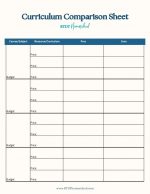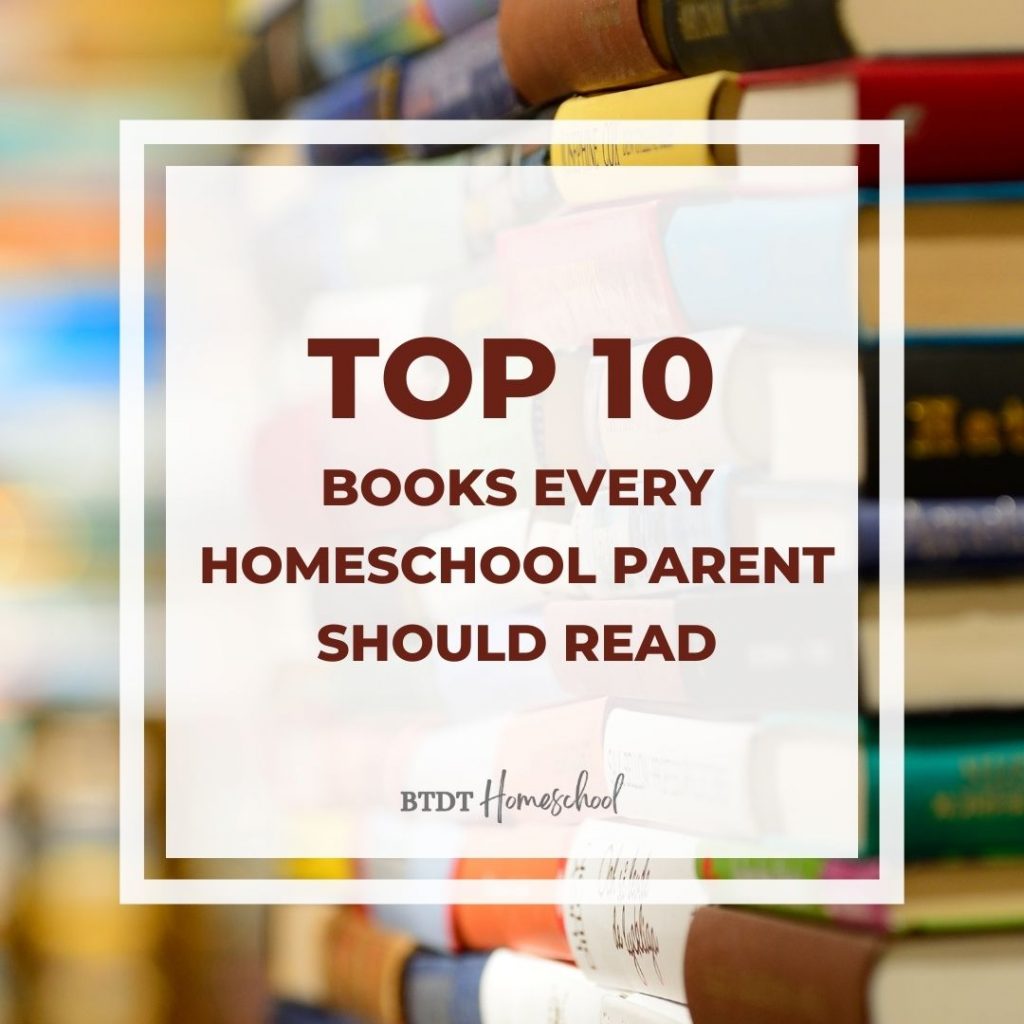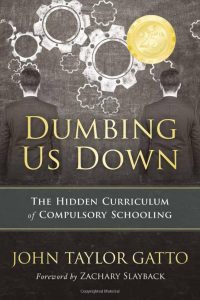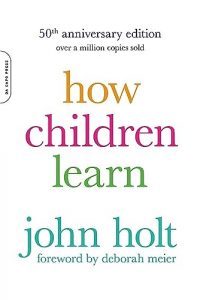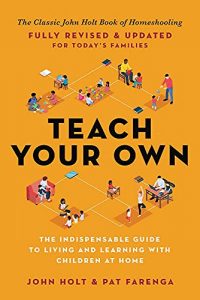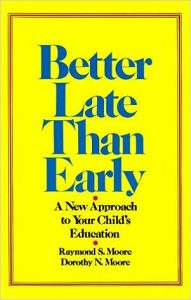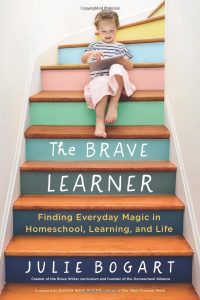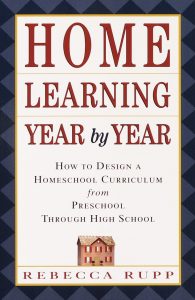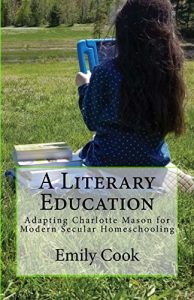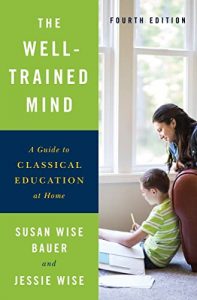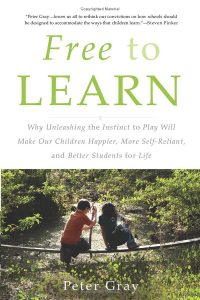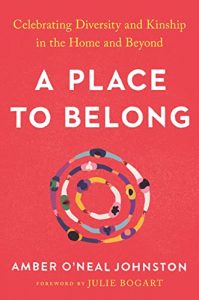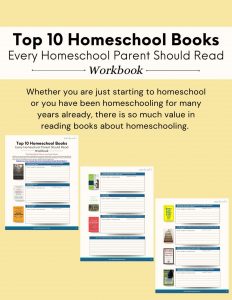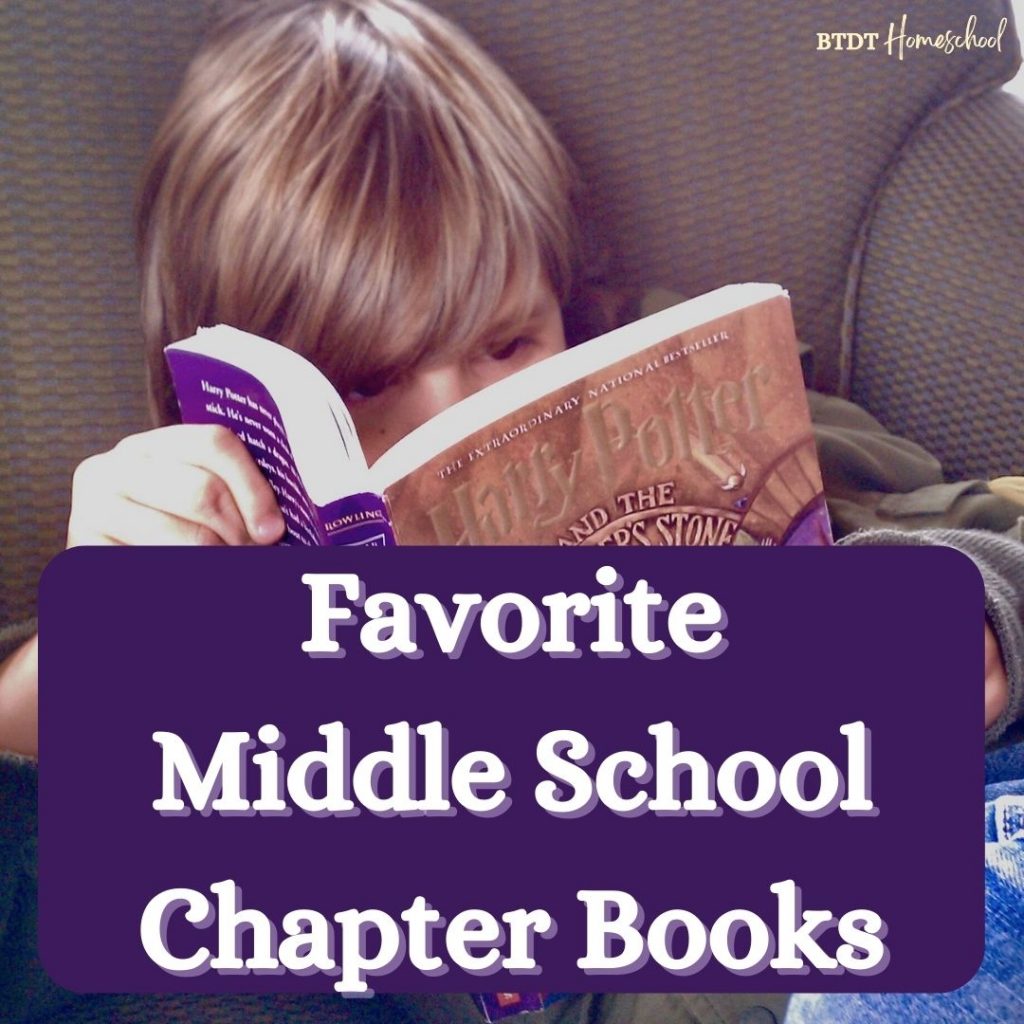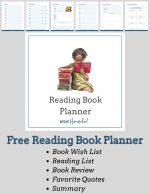044. Hidden Agenda in Homeschool Groups and Organizations
044.
Hidden Agenda in Homeschool Groups and Organizations
When looking to purchase homeschool curriculum or join a homeschool group or organization, it’s essential to find what works best for your child and for your family’s value system and avoid scams.
* What does Religious, Secular, and Inclusive really mean?
* Do you REALLY need to join HSLDA?
* How do you find out if a group is right for your family and avoid scams?
Tune in today as we answer these questions and more!

Episode 044:
TWO WAYS TO LISTEN TO THIS EPISODE:
1. Click PLAY Button Above ^^ to listen here.
2. OR Listen on your favorite podcast platform:
Scroll down for this week’s FREEBIE:
Curriculum Comparison Sheet (pdf)
Brand New to Homeschooling?
GETTING START PAGE >>
Kindergarten Page >>
High School Series >>
Show Notes
As seasoned homeschoolers, we have noticed that the pandemic and sudden influx of homeschoolers over the last few years has unfortunately attracted some nefarious and predatory companies into the curriculum market. But we also know that there are a lot of differences in types of homeschoolers, in general- we’re not a homogenous bunch by any stretch, and so it is important to be able to sift through the enormity of the information out there to find just the right fit and path for your family. At the end of the day, we could all be homeschooling for completely different reasons, but we still don’t want to see anyone fall prey to a scam, or spend money on a program or organization that isn’t going to be a good fit or helpful to their family.
It goes without saying that transparency varies between organizations and online groups and companies, and finding conflicts of interest can be daunting. By honing your critical thinking skills when evaluating, and being mindful of biases, you can navigate the complex landscape of information and make more informed judgments. When looking at homeschool organizations, groups, and curriculum purveyors:
Investigate ownership
Examine the ownership of the organization. Determine if there are any potential conflicts of interest based on the political or corporate affiliations of the owners. Media consolidation or bias can influence the content and presentation of news.
Scrutinize funding sources
Investigate the funding sources for them. Look for any financial ties or affiliations that may influence the information presented. Consider whether the funding sources are vested in a particular outcome or narrative. Is this a spin-off group that is owned or operated by a different, larger company with a different viewpoint? And don’t just look at who donates or sponsors them, who do they donate to or sponsor? Do you want your money going to these other groups?
And likewise, what are their connections?
You want to examine any potential affiliations that individuals posting or the organization may have. Does a financial or professional relationship impact their objectivity or bias? Do they feature a review or advertisement from a public figure that has nothing to do with education?
Is it a real person with experience?
Sometimes in these homeschool groups, there are brand new profiles with only a couple of Facebook friends and/or a stock photo. You can easily search in a group if somebody posts repeatedly promoting a certain product. That’s a red flag. It’s also typically against the rules of most groups to post without identifying that you are affiliated or employed by the company that you are promoting.
Evaluate disclosure statements
If a homeschool organization lacks transparency or has incomplete disclosures, that’s often a red flag. If I can’t even identify what the company’s worldview is, there’s a chance that they aren’t even aligned with your family values. And if they aren’t, you won’t want to purchase their product.
Cross-check multiple sources
Verify information by seeking diverse sources and experiences. Relying on a single source or outlet increases the risk of biases or conflicts of interest. Use that search bar! See what other users are saying. Don’t trust the company or organization to vouch for themselves.
These are simple things you can do to determine whether a company or group is legitimate and worthy of your membership and money.
Do I need to join HSLDA? (6:54)
(Homeschool Legal Defense Association)
So, one of the biggest things you will see on posts and pages about getting started in homeschooling is the advice to immediately join HSLDA (or other state- focused homeschooling associations).
Back in the early 1980s, home education was widely illegal, and still typically fell under truancy laws and statutes—which govern compulsory education—in many states. In response, a batch of lawyers founded the HSLDA and over the decades have pursued the abolishment of homeschooling regulation and oversight. They’ve largely succeeded. Not only is homeschooling legal in every state, in some states parents are not required to notify anyone of their intent to homeschool.
The Home School Legal Defense Association (HSLDA) defines themselves as a nonprofit organization in the United States that advocates for the rights of homeschooling families and provides legal support to homeschooling parents facing legal challenges. The organization’s stated mission is to preserve and protect the right of parents to educate their children at home. However, some critics and observers have speculated about potential hidden agendas or broader motivations behind the organization’s activities.
They are primarily a lobbying group
Lobbying involves advocating for specific policies, legislation, or regulations to government officials in order to influence the decisions and actions of lawmakers. HSLDA advocates for laws and regulations that support the rights of homeschooling families and parents who choose to educate their children at home, but their lobbying efforts typically revolve around issues related to homeschooling regulations, parental rights, and educational freedom. This can include advocating against overly restrictive regulations or requirements that could impede parents’ ability to homeschool their children. Often though, there is an underlying agenda to promote conservative Christian values and religious beliefs through homeschooling. They may be more focused on shaping the curriculum and educational content according to these values.
HSLDA’s Homeschool Foundation is a member of the American Legislative Exchange Council (ALEC), an organization that drafts model conservative legislation for distribution to state legislatures. They are on ALEC’s education taskforce.
Kathryn Brightbill is the policy analyst at the Coalition for Responsible Home Education, an organization founded by homeschool alumni who seek sensible homeschooling reforms. She says this about HSLDA:
“HSLDA has had an outsized role in shaping homeschool culture, including secular homeschool culture. Whatever noble motivations they may have had to help homeschoolers at the organization’s outset, their belief that children don’t have rights — only parents have rights — combined with their decision to take parent’s claims at face value instead of vetting the cases they choose, has made them an organization that enables child abuse and educational neglect.”
Their focus on policy and legislation also has an impact on public education: There are concerns that a strong homeschooling movement, supported by organizations like HSLDA, might lead to decreased funding and support for public education, potentially weakening the overall quality and accessibility of education for all children. We are already seeing this happening with school choice and voucher legislation and the destabilizing of the public school system.
They do not serve ALL families
Unless you are a Christian family there’s a very good chance that HSLDA will not represent you. They will take your money through membership, but they will not represent you. It’s so important for anybody giving money to them to know that your membership dues put them under NO obligation whatsoever to give you any legal aid. There is no guarantee, no policy in place that your membership money entitles you to any legal assistance whatsoever. They can choose to represent you, OR NOT, for any reason they see fit.
In the majority of states, the homeschooling regulations are relatively simple. If you get confused or run into minor trouble, most states have a statewide organization that can help you. It’s very rare for people to really run into trouble with the state over homeschooling, but if you do, it’s likely you’ll have to get your own lawyer anyway. Like here in Texas, CPS is not going to investigate a family JUST because of homeschooling.
They have a particular agenda and a particular view of homeschooling to advance. They have a conservative political agenda and sometimes insert themselves into issues that have absolutely NOTHING to do with homeschooling. In particular, they are anti-gay. They have never been subtle about their dislike of the LGBTQ people or their impassioned advocacy to ensure that LGBTQ communities are denied human rights and education. In 2004, HSLDA promoted a constitutional amendment that would ban gay and lesbian couples from not only the institution of marriage but also civil unions. (view the amendment). We are inclusive homeschoolers, and we embrace the LGBTQ community and it is a slap in the face after so much work has been done in these communities to create equal opportunities for all families.
They use fear tactics to drive membership
I can’t tell you how many times I have seen posts from or about HSLDA that describe some crazy homeschooling story and how HSLDA had to step in and fix it and then everyone is like, this is why you should join. Social workers and child protective services are consistently portrayed as “evil” and people who “abuse their power.” HSLDA has used resources like the Court Report and email alerts and Facebook posts to “fuel fear and distrust of government.” They act like you are facing certain doom if you don’t have their “protection,” but the reality is you don’t need them. So long as homeschoolers follow whatever regulations exist in their states (these vary from nothing at all to requiring annual portfolios), they’re almost always fine.
Parental Rights Extremism: While HSLDA primarily focuses on homeschooling rights, some critics suggest that the organization’s advocacy for homeschooling rights might be part of a broader agenda to expand parental rights, potentially including the right to make medical decisions for children, even in cases where those decisions could have negative health outcomes.
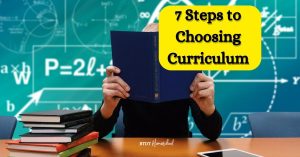
Minimal Government Oversight: HSLDA is known for advocating against government regulation and oversight of homeschooling. Critics contend that the organization’s push for minimal government involvement might be motivated by a desire to limit the ability of authorities to ensure that homeschooled children are receiving a well-rounded and comprehensive education. This can contribute to abuse.
Isolationism and Control: There are concerns that HSLDA’s support for homeschooling could potentially enable some families to isolate their children from diverse viewpoints and experiences. Critics worry that this isolation could lead to indoctrination and limit children’s exposure to a range of perspectives.
Almost all of the information they provide is also available for FREE
Seriously. You do not have to pay for a membership when all of the information is available online. HSLDA has developed a brilliant strategy: fear mongering. A fear-based decision is not a logical one. The best way to overcome these fears they have worked so hard to put into our heads is to educate yourself on your state laws. Be proactive and be your family’s advocate. We have a handy guide on our website where we give a summary for each state and a link to each state’s education department. Join homeschool groups in your area, hone those critical thinking skills, and know that knowing your rights is your family’s best defense.
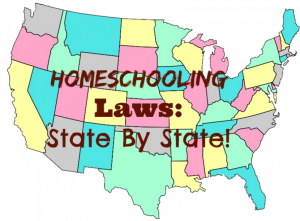
What does religious, secular, and inclusive really mean? (17:13)
When it comes to homeschooling, the terms “secular,” “inclusive,” and “religious” refer to different approaches and types of educational materials used in the curriculum, homeschool groups, and homeschool social gatherings. Here’s a breakdown of each category:
Secular Materials
Secular homeschooling materials are those that are not tied to any particular religious belief or doctrine. They focus on providing education from a non-religious perspective, emphasizing a neutral and objective approach to academic subjects. Secular materials aim to be inclusive of various beliefs and worldviews, focusing on facts, critical thinking, and a well-rounded education without a religious bias.
- Ideal for families who want an education without a religious bias or who have a diverse range of beliefs.
- Emphasizes critical thinking, scientific reasoning, and a well-rounded education.
- Generally well-suited for families who want to expose their children to a variety of viewpoints.
Inclusive Materials
Inclusive homeschooling materials take into account the diversity of beliefs, cultures, and backgrounds among students and families. These materials strive to represent a wide range of perspectives, experiences, and identities. Inclusive materials acknowledge and respect differences, fostering an environment where students can learn about and appreciate various viewpoints and cultures.
- Suited for families who value diversity, cultural awareness, and open-mindedness.
- Fosters an environment of tolerance and respect for different perspectives.
- Can help children develop empathy and an understanding of global issues.
Religious Materials
Religious homeschooling materials are rooted in a specific religious faith or belief system. They incorporate religious teachings, values, and perspectives into various subjects across the curriculum. These materials are often used by families who want to provide a religious education that aligns with their faith. Religious homeschooling materials can be tailored to different denominations and belief systems, allowing families to integrate their religious beliefs into their children’s education.
- Chosen by families who wish to integrate their religious beliefs into their children’s education.
- Provides a foundation for spiritual and moral development aligned with specific religious teachings.
- Tailored to families who prioritize passing down religious traditions and values.
So to further complicate things though, there are some homeschool curricula or groups that are designated as “neutral.” While by definition, “Neutral” homeschool materials should refer to educational resources that are free from bias, whether it’s religious, political, or cultural, we often find that instead Neutral materials aim to *avoid* promoting any particular ideology or perspective. We see this most often in science curricula, where providers are hesitant to promote facts, for example, about evolution, so as to not dissuade people who believe in creation from buying their products, or vice versa.

View our Book of Centuries for the Secular Homeschooler>>
But we also see this in religious curriculum companies, who may market a neutral or secular program in order to secure more customers. It’s important to note that just removing bible quotes or religious content does not make a program secular. You cannot erase an overall worldview.
This can get really tricky for secular schoolers though, because over the years some secular groups have gotten really strict about these definitions. You have to understand that when we both started homeschooling, there weren’t a ton of truly secular options out there. We had to adapt a lot of things and there might still be things we are ok using because we know and like other parts of the program or there is nothing else like it out there. But younger homeschoolers have seen the advance of truly secular programs and may be unwilling to compromise. And that’s great, we should demand and advocate for the things we want to invest in and get what we want. But, sometimes those rules can be too strict or rigid and we’ve seen secular providers get deemed not secular, for one small thing. We think we should do our best to fully support secular providers, but still be open to using what works for your family.
And of course, this disparity isn’t just between religious and non-religious materials. You also have to be careful when purchasing religious materials as these are not all the same either. The terms “old earth” and “young earth” refer to differing viewpoints on the age of the Earth and the universe within the context of creationism. These viewpoints often come up in discussions related to science education, particularly in the homeschooling community. The differences between old earth and young earth perspectives are primarily centered around the interpretation of scientific evidence, geological processes, and religious beliefs.
Old Earth Perspective:
- The old earth perspective holds that the Earth and the universe are billions of years old, as determined by scientific evidence such as radiometric dating, geological layers, and astronomical observations. This viewpoint generally aligns with mainstream scientific consensus and the theory of evolution. In an old earth perspective, the creation days described in religious texts may be interpreted as symbolic or metaphorical rather than literal 24-hour periods. In homeschooling materials that incorporate an old earth perspective, you might find references to geological time scales, discussions about fossils, and explanations of the various scientific methods used to estimate the age of the Earth and the universe. These materials typically aim to reconcile scientific understanding with religious beliefs by interpreting religious texts in a way that allows for an ancient Earth.
Young Earth Perspective:
- The young earth perspective asserts that the Earth and the universe are relatively young, often interpreted as around 6,000 to 10,000 years old, based on a literal reading of certain religious texts. Advocates of this viewpoint reject the scientific consensus on the age of the Earth and often reject evolution in favor of creationism. Young earth proponents may present alternative explanations for geological features and radiometric dating methods, often rooted in a belief in a global flood event. Homeschooling materials that follow a young earth perspective might emphasize a literal interpretation of creation accounts, present counter arguments to mainstream scientific theories, and promote alternative explanations for natural phenomena. These materials typically align with religious organizations or ministries that advocate for young earth creationism.
Ultimately, when selecting homeschooling materials, it’s so important to align your choice with your family’s values, beliefs, and educational goals. It’s sometimes baffling to see people make big purchases without fully researching this simple idea of worldview. Or choose a free curriculum that doesn’t align with their family. Don’t do it, it’s not worth it! No matter what your worldview is, I would think you would want to know what they are purchasing. Consider what type of education you want to provide for your children, and choose materials that support those objectives. It’s also worth noting that some families blend different types of materials to create a well-rounded and personalized curriculum.
Now of course, there is a big difference between not quite grasping the importance of worldview in your choices and downright getting scammed. So let’s talk about it.
Nefarious homeschool curriculum purveyors and how to avoid them. (25:54)
This is again something that really started to become a problem since Covid. Maybe, before doing our own podcast and so much research, we didn’t notice it as much, but there definitely was a surge because of a sudden awareness in an untapped market. Especially following the pandemic, when you had a ton of people that were desperate and looking for answers quickly, it was prime time for companies or people to take advantage.
Like we mentioned earlier about using your critical thinking skills to determine the legitimacy of groups and organizations, we recommend taking the following steps before purchasing a curriculum or program:
Website and Online Presence
Check the company’s official website and online presence. Legitimate companies typically have professional websites with clear information about their products or services, contact details, and terms of use. Did their website just go up in the last couple years? Can you find information about their company prior to that? Is their name very similar to another popular curriculum that is actually legit, but so close in name that you may accidentally buy the wrong one. That’s not an accident!


Join the Group for Free>>
Does the company have a website that attracts certain vague key words? One company we’ve been seeing in particular recently had a web address that read like “online homeschool curriculum” when it’s a company that only provides pdfs. They recently changed the address when that came up (though you can still route to it through there). This was and still is a very popular keyword/s that new homeschoolers would search.
Does the company advertise deceptively by putting fake profiles in homeschool groups or even setting up fake homeschool groups themselves in which they can block any negative commentary about their products, or advertise without regard to the rules? One such company set up a homeschooling group in each state that they run. They also got mad that they were banned from a popular middle and high school homeschooling group and set up their own with a very similar name. Not surprisingly, we’ve both been banned from this company’s fake groups for calling them out!
Get your FREE Curriculum Comparison Sheet:
Typically homeschool groups have rules about spam and advertising. It is not considered appropriate on most groups to provide affiliate links or links to groups without indicating it as such or disclosing that it’s your company. There is a very popular homeschool company that pays people for posts with links. Several groups have made rules that you cannot mention that group with the clickable web address you have to say “company name DOT com”, spelled out. It made me completely wary about the company in general when I found out they market like that.
There is a local husband and wife with a homeschool business in which the husband will come on posts and talk about it vaguely, never mentioning his wife’s business. They’ve been banned from a couple groups for deceptive marketing practices.
Contact Information
Ensure that the company provides valid contact information, including an email address, phone number, and physical address. Legitimate companies are going to be transparent about their location and how to reach them. Legit companies are also usually pretty open about who the experts writing their programs are, too. They usually want you to see that their writers are actual people that have some kind of advanced education or relevant experience in the subject that they are writing about. They probably have an actual photo of the real person, much like an author bio does on any other book.
Reviews and Testimonials
Look for reviews and testimonials from customers who have used the company’s products or services. Online reviews can provide insights into the company’s reputation. Make sure the reviews and awards won are from actual legitimate reviewers and resources. We’ve mentioned Cathy Duffy before as a great source for curriculum reviews. One such predatory company lists themselves as award winning, though the only link to their award is from a website that they also own, and all of the other reviewed items are companies with affiliate links that also benefit that particular provider.
Pay attention to the company’s overall professionalism, including the quality of their website, branding, and communications. Legitimate companies tend to invest in a professional image. A couple of these companies are so easy to pick out once you notice them because not only are they not professional, but they have the same style to everything they put out from supporting websites, posts, and even their fake profile pictures.
Business Registration and Customer Support
Check if the company is registered with relevant authorities in its jurisdiction. Legitimate companies often have official business registrations and licenses. Contact their customer support with any questions or concerns you might have. Prompt and helpful responses are indicative of a legitimate company.
A very popular homeschool company last year made a big change in how you could use their product, resulting in tons of homeschoolers losing their students’ work and records. When parents complained online, they were blamed for using the product incorrectly, their posts were deleted by the company, and then the owner came on and doubled down with some very ugly comments about homeschoolers. They lost so much business when this happened. We never looked at them as a resource in the first place considering the owner was in a cult and lacked professional education experience, but a lot of people were willing to overlook that for the bargain monthly fee. You get what you pay for, folks!
Search for companies in homeschool groups and see the ones that do not provide as promised, and then do not refund when they said they would. Also, when you see a post or recommendation, click on that person who is recommending to see if they are also contributing to the community or are they just promoting this product?
Red Flags
Be cautious of companies that ask for personal or financial information upfront, make unrealistic promises, or pressure you to make quick decisions. Lifetime memberships? I would seriously advise against buying anything marketed as a lifetime membership. Kids grow and mature and the things and methods that you want to use to teach your children often shift as you progress in homeschooling. So often people are stuck with a lifetime membership that they can’t use because it doesn’t even work for their family anymore.
What about a program that is for sale this week only? Deeply discounted? Sometimes these programs are actually always for sale, you just happened to pop on right then. It’s like going to a store with your 20% off coupon. It’s not that you are actually getting 20% off, they just upcharge 20% and you paid the actual price. But everyone likes to feel like they are getting a deal, right?
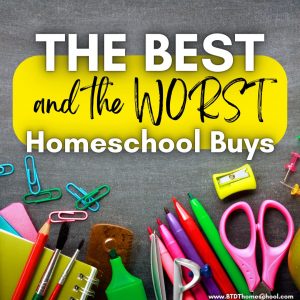
We ultimately decided not to name names in this episode because these are businesses that make money and can probably afford lawyers whereas we are doing this as a passion project and exist to help others. We’ve already seen how they block and delete comments online. You are totally welcome to message us before buying and verify that that is not the company we are talking about though. *Wink wink* We’ve got your back!
How do I find out if a group is right for my family? (37:00)
So, what about in person groups or local homeschool co-ops, university model schools, pods? A lot of states have very loose regulations about how many people a person can homeschool, whether you can homeschool people that aren’t your kids, how many students constitute a school and are then subject to health and other local business and insurance regulations. Following the pandemic, a lot of options in alternative schooling and social groups popped up. Determining whether a homeschool group is the right fit for your family involves careful consideration of several factors.
Research Options
Start by researching the homeschool groups available in your area. You can use online homeschooling forums, social media groups, local community centers, and homeschool association websites to find potential groups. You may like to search with words like secular or inclusive. If these are not included, you can assume the group is a religious one as a default.
Activities and Offerings
Look into the activities and offerings provided by the group. Some homeschool groups focus on field trips, social events, co-op classes, and extracurricular activities. Assess whether these align with your family’s interests and needs.
Goals and Philosophy
Consider your family’s homeschooling goals and educational philosophy. Different homeschool groups might have varying approaches to teaching, curriculum, and learning styles. Ensure that the group’s values align with your family’s educational goals. Remember that homeschoolers are all very different- some families may want to outsource more than others. Some may want to outsource academics, or some may only want to do extracurriculars. Make sure you are on the same page with the rest of the group. Make sure the world view is a match. Don’t sign your child up for a science class that uses Christian content if you want a secular class. Learn more about Finding Your People
Membership Requirements
Check the membership requirements of the group. Some groups might require a certain level of commitment, participation, or financial contribution. Make sure you are comfortable with the group’s expectations. Some groups have strict rules that you may not have qualms about, things like dress code, for example, even for parents! Many religious homeschool groups require a statement or faith, and some people are so desperate for a social outlet that they are willing to sign this, even if they don’t believe it. Many times, these statements are discriminatory against certain people, often there are specific anti-LGBT statements. These are not the groups for me.
Inclusivity and Diversity
Check whether the group is inclusive and open to families of different backgrounds, beliefs, and homeschooling styles. A diverse group can enrich your homeschooling experience. Also, carefully look through mission statements. There is a local university model school here that has a very vague inclusion statement that leaves out significant groups of people.
Size and Composition
Consider the size of the homeschool group. A larger group might offer more diverse activities and opportunities, but it could also be overwhelming for some families. A smaller group might provide a more intimate setting but with fewer resources. And you don’t have to just be part of one. We are part of several groups, and they all have a little something different to offer.
Location and Schedule
Evaluate the location of the group’s activities and events. Consider the distance you need to travel and whether the timing of events fits your family’s schedule. Remember that the myth of socialization! It can be super easy to over schedule yourself with activities. While many of us are willing to drive for awesome things in the beginning, that may not be a workable option long term.
Parent Involvement
Consider the level of parent involvement required in the group. Some groups might expect parents to contribute in various ways, while others may have a more relaxed approach. Many people post looking for drop-off co-ops. Co-op means co-operative and implies that parent participation is a must. And don’t be afraid of parent participation- it can be very rewarding.
Trial Participation or Attend a Meeting or Orientation
f possible, attend a few events or activities hosted by the group as a trial before committing. If the group offers orientation sessions or informational meetings, attend one to learn more about the group’s structure, goals, and expectations. This will give you a firsthand experience of the group’s dynamics and whether it suits your family. Some groups even require this of you before you attend. Give it more than one chance, too, if the vibe isn’t quite there the first time. You may meet your new bestie family on the third go! Reach out to current members of the homeschool group and ask about their experiences. Their insights can provide valuable information about the group’s strengths and potential drawbacks.
Trust Your Instincts
Trust your instincts and how you feel about the group after gathering information and interacting with its members. If something doesn’t feel right, it’s okay to explore other options. Remember that every family is unique, and the right homeschool group for one family might not be the best fit for another. Take your time, gather information, and prioritize what aligns best with your family’s values.


